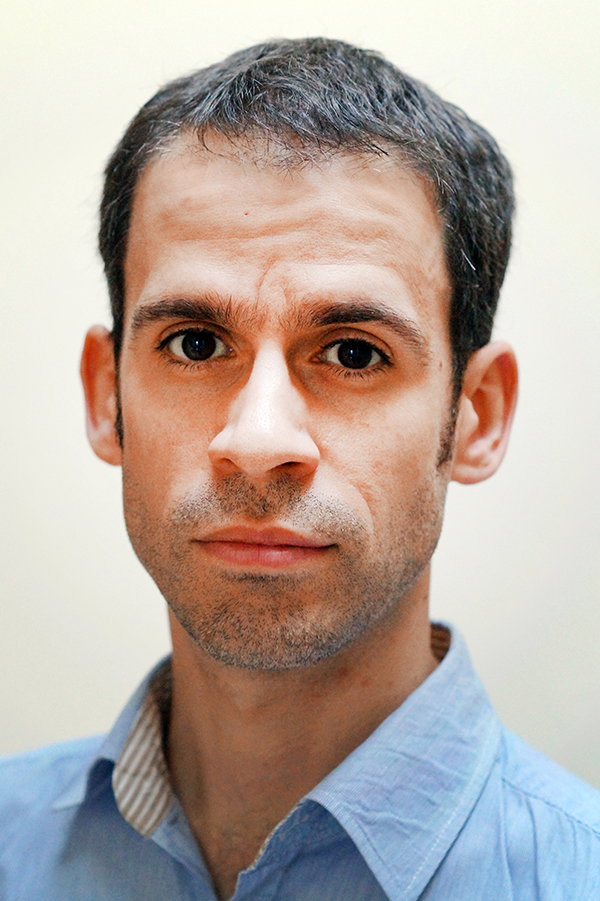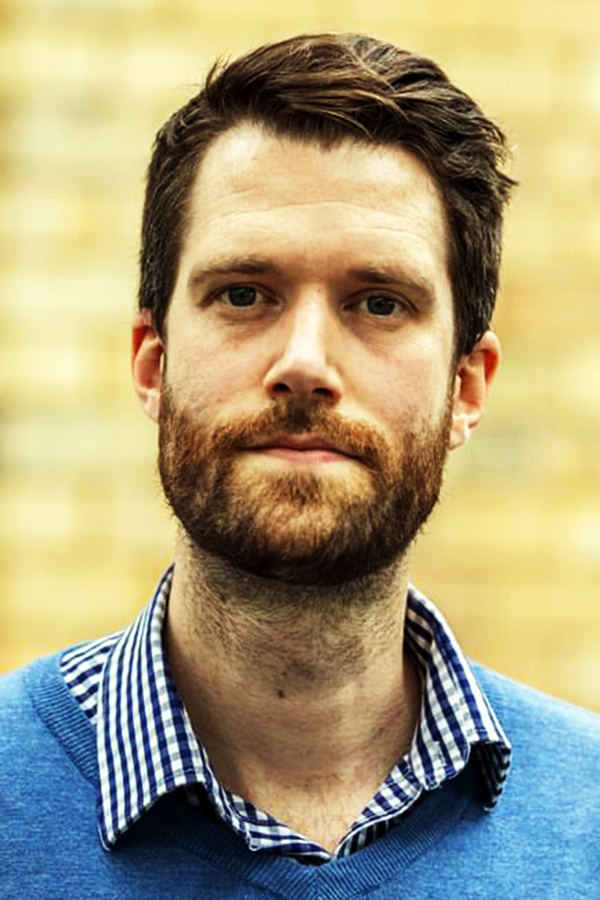How many last best chances to we need?
In fact, the better question is: how many have we got left? And the answer could be: not many.
Last year, as delegates gathered in Glasgow for the Cop26 conference, we were told that this was the last best chance the world had for staving off the catastrophic effects of a human-caused climate disaster.
The world saw almost 200 countries coming together in Scotland to commit to take action on climate change and forge the Glasgow Climate Pact.
The intention is to attempt to keep global temperatures from rising more than 1.5 degrees. At the same time, the pact demanded progress on finance for climate action, adaptation and loss and damage – for the richest, most polluting countries to pay their fair share for the damage which is heaped upon the poorest, which suffer most from the effects of the climate collapse.
As TFN was going to press, delegates were gathering in Sharm el-Sheikh for the latest round of talks – Cop27. There, as a result of pressure brought to bear since the Glasgow meeting, the issue of loss and damage has been high on the agenda.
Cop27, like Glasgow, has also been called a last best chance. But in the past year the rhetoric and the warnings have ratcheted up and increased.
UN secretary-general Antonio Guterres has warned that we are very close to a tipping point, over which humanity will be doomed. It doesn’t get much more stark.
Here we ask four experts in the fight against climate catastrophe what they think has been achieved since Cop26 in Glasgow.
Jamie Livingstone, Head of Oxfam Scotland
As he slammed his gavel a year ago, Cop26 President Alok Sharma heralded the talks and the resultant Glasgow Climate Pact, as having kept the fight for 1.5 degrees “alive”.
While every fraction of a degree of warming is deadly, this figure is seen as the upper limit of what is needed to reduce the worst impacts of climate change.
But a year on, the UN has stated that we’re still firmly on track for a global temperature rise of 2.5°C, a level that will prove catastrophic for people and our planet.
Since the Glasgow talks, attention has been drawn towards the war in Ukraine and the soaring cost of living. Yet we have no option but to deal with these crises at the same time. After all, climate-induced extreme weather events are causing increasing devastation.
This year, over 33 million people in Pakistan have been affected by flash-flooding.
Meanwhile, people across Somalia, Kenya and Ethiopia are battling the worst drought in 40 years, with one person in the region likely to die of hunger every 36 seconds between now and the end of the year.
Amid such painful consequences of inadequate climate inaction, the need for Cop27 to deliver faster global emissions cuts is intense.
But these talks must also finally – after three decades of shameful blocking by rich, industrialised nations – establish a global Loss and Damage Finance Facility that channels new and additional cash support to communities already facing destructive climate impacts that can’t be avoided by reducing emissions or by adaptation.
First Minister Nicola Sturgeon has, rightly and loudly, championed this issue since making Scotland the first country in the world to commit dedicated funding to address loss and damage.
If Cop27 delivers this Facility, last year’s talks on the banks of the Clyde may well be seen as a vital stepping-stone towards delivering vital help to those suffering climate injustice today, and in the years to come.
Carly Munnelly, Save the Children’s senior development financing adviser
Last year, the UK hosted Cop26 in Glasgow – the world’s most significant annual conference on climate change. Many commitments were made by global leaders to drive forward solutions to tackle climate change. These leaders met again at Cop27 in Sharm el-Sheikh, Egypt where one of the most prominent agenda items was assessing progress on the commitments made last year.
Here is a look at some of the biggest commitments made at Cop26 and progress we know about so far:
Commitment: accelerating efforts on the phase-down of coal and phase out of inefficient fossil fuel subsidies
Progress: although the number of new coal plants proposed has decreased this year compared to last, surging energy prices due to Covid-19 and the war on Ukraine has caused coal to become more economically attractive. Coal consumption is expected to increase by 0.7% between 2021 and 2022, with the biggest increases in India and the European Union (increasing by 9% and 10% respectively in the first half of 2022). Further, government subsidies are expected to continue to rise as governments subsidise consumer bills to combat rising energy prices.
Commitment: nations to return in 2022 with new, more ambitious targets to curb emissions in updated NDCs
Progress: only 24 countries have submitted new or updated Nationally Determined Contributions (NDCs). Based on updated analysis of all NDCs, we are in a better place than we were last year (expecting 10.6% increase in emissions between 2010-2030 compared to 13.7% estimated last year). However, these plans remain woefully insufficient and we are still on track for 2.5 degree Celsius warming by the end of the century.
Commitment: create the Glasgow Dialogue on Financing Loss and Damage to facilitate formal discussions around loss and damage.
Progress: the Cop26 commitment on loss and damage was extremely disappointing to the many countries on the frontlines of the climate crisis advocating for the need for a separate loss and damage mechanism with consistent dedicated funding. Formal talks have progressed throughout the year through the Glasgow Dialogue, but no significant conclusions or action have been taken as a result.
However, outside of the formal Cop26 commitments, Nicola Sturgeon pledged £1 million specifically to address loss and damage. Later in the week of Cop26 she doubled this to £2m. This pledge represented the first ever commitment by a wealthy country specifically for loss and damage and put Scotland at the forefront of climate justice advocacy. Since Cop26, the Scottish Government has said it is “reviewing the best way to spend their financial contribution in order to have the greatest positive impact”. At least part of the funding has since been channelled through the Climate Justice Resilience Fund, who have in turn began using this funding throughout 2022 to provide grants for their partners delivering loss and damage projects – primarily around climate-forced migration.
Overall, the world is in a slightly better place to reach our climate targets since Cop26, but progress remains slow and fragmented, and our global ambition remains insufficient.
The overarching issue with the commitments made at Cop26 is that they were not accompanied by global accountability mechanisms – instead their implementation relies on goodwill. Detailed implementation plans with enforceable accountability will be critical to determining the success of Cop27.
Becky Kenton-Lake, Coalition manager, Stop Climate Chaos Scotland
It’s a year since Glasgow hosted thousands of world leaders, negotiators, activists and journalists for the Cop26 UN climate talks, and the 27th Cop was taking place in Sharm el-Sheikh, Egypt, as TFN was being published. With other global crises like Russia’s invasion of Ukraine and rising prices we’ve seen attention move away from the climate emergency, but the arrival of Cop27 brings it back into focus – something that is urgently needed.
The likelihood of keeping temperature rises to 1.5 degrees is becoming increasingly slimmer, and ever more devastating impacts are already being seen across the world – so has any progress been made since last year’s talks?
At Cop26 it was agreed that all countries needed to bring forward improved commitments to reducing emissions at Cop27. However, the renewed combined pledges do not deliver significant improvements and put us on track to a deadly 2.5 degrees of heating. In Scotland, progress in reducing emissions has also not accelerated, with three of the last four emissions targets missed.
The most recent figures for 2020 show the target was met, however the Scottish Government acknowledged this was largely due to measures taken to protect public health during the pandemic.
Another key issue at Cop26, the provision of finance to help countries mitigate and adapt to climate change, has not seen the progress needed, with the pledge of rich countries to deliver $100 billion by 2020 still not delivered. In addition, Global South countries have long called for ‘loss and damage finance’ to be properly addressed at the talks – this refers to the irreversible climate impacts on lives and livelihoods that it is not possible to mitigate or adapt to.
Currently some of the world’s poorest countries have to foot the bill to recover from extreme weather events, instead of the biggest polluters who have caused the crisis. Scotland showed leadership on this issue at Cop26, becoming the first nation to commit funding specifically for loss and damage.
However, while this was welcome and important symbolically, it is vital that other countries make commitments to loss and damage finance at this year's talks – with it finally being on the formal agenda for the first time at Cop27, we hope to see progress.
One huge positive we can take from Cop26 is the way that civil society came together to call for strong action, and gave such a warm welcome to activists from around the world who arrived in Glasgow. With strict laws on protests and human rights violations in Egypt, it’s even more important we come together this year in solidarity with Egyptian civil society.
Ben Wilson, Partner advocacy officer, SCIAF
Cop26 didn’t live up to the hype. The conference was marred by more broken promises than delivering the breakthrough we all needed.
The first broken promise was on the eve of the conference, when the UK government announced that the target it had agreed with the other developed countries, which was meant to be achieved by 2020, would not be met by pledges at Cop26.
This put the whole conference out of kilter at the beginning, as finance was absolutely key for countries in the Global South who are already paying for the impacts of climate change that they did not cause. Secondly, world leaders failed to step forward with more ambitious plans to reduce their emissions to keep 1.5c alive.
As a result, the UK as Cop president put a lot of energy into securing a deal which required them to come back at Cop27 with improved targets.
They got this deal, sort of, but the wording was so weak that countries didn’t need to follow it.
Just a couple of weeks ago, the UK published its own “renewed” plans ahead of Cop27 which did not even increase their climate targets. They failed to meet their own agreement!
The Scottish Government, which did not have to submit one of these plans as a non-independent country, did submit a so-called “indicative Nationally Determined Contribution” ahead of Cop26.
But it also hasn’t improved its targets ahead of Cop27. We are meant to be in a climate emergency – but where is the urgency from our leaders?
However, there were some glimmers of hope. The people of Glasgow did the city and the country proud, and the local organisations which helped welcome and organise our visitors helped seize the occasion to build awareness and people power on climate change. This should have a lasting legacy.
Inside the SECC, something else positive happened.
The Scottish Government made a financial commitment to the issue of loss and damage. Loss and damage is UN jargon for the incurred impacts of climate change, and is highly contentious as the solution requires a polluter-pays approach.
In short, the countries of the Global North don’t want to accept responsibility.
So when the Scottish Government committed money to this issue, calling it “an act of reparations not charity”, it made a tremendous impact at the Cop and was celebrated by world leaders from the Global South and the UN chief Antonio Gutteres.
This is a key issue at Cop27, and the first minister has a big role to play. In championing loss and damage in Glasgow, the she stuck her head above the parapet, and stood shoulder to shoulder with the Global South.
If she can continue to push the boundaries at Cop27 by encouraging others to follow suit and commit to a ‘make polluters pay’ principle, she could be a crucial part of a deal for loss and damage finance, which would have tremendous global significance.











